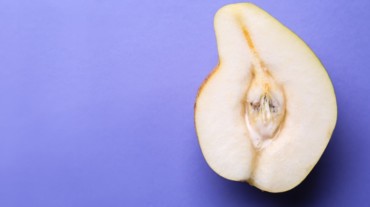Chat with ![]()
Chat with ![]()

Not so long ago, a former birth attendant at the National Health Service, UK, made headlines all over the world when she decided to share her two cents about the vagina becoming dry during the cold, winter months with the world.
According to her, the problem that apparently affected the sex lives of many women during the colder part of the year was due to the collective dryness from the moisture-sucking heaters, the cold winter air, and a decreased water intake during the winter.
The result? Many women started blaming their dry vagina on the season instead of taking their parched vayjayjay more seriously.
But is there any truth in her claim?
Let’s revisit our childhood days to find an answer to this before we go on to check out expert opinion on the matter.
Have you ever wondered why your mother probably took the pain of buying you an expensive steel water flask instead of an ordinary water bottle–despite you misplacing it every alternate week in school?
The lady obviously wasn’t a spendthrift and her intention was just to make sure that the water remain cold in the summer and warm in the winter in that insulated flask. Similarly, our common mother, Mother Nature has made sure that our precious vaginas are well protected from the seasonal change and thus placed them inside the body—way beyond the reach of a weather change.
“Vaginal dryness doesn’t happen due to a temperature drop in the winter as the vagina is inside the human body and our bodies maintain temperature on their own,” says Dr. Madhu Goel, director, obstetrics and gynecology department, Fortis LaFemme, New Delhi.
Also read: Here’s how coconut oil helped my case of vaginal dryness
Then, why the dry vagina?
Your vagina is a smartass, ladies. In addition to having a self-cleaning, self-regulating mechanism, it also has moisture-coated walls for protection and lubrication during sexual intercourse. These walls, in fact, help the sperm slide in easily and make it to the eggs waiting to get fertilised in the fallopian tube.
Many factors can cause this wall to become thinner or decrease its moisture content. Both of these can lead to vaginal dryness characterised by a lot of discomfort down there.
“One may experience itching, burning sensation, pain while having sex, and even slight blood spotting in case of vaginal dryness,” says Goel.
And totally ruling out the outside temperature as a cause, she explains, “It can happen due to lack of estrogen hormone (the hormone responsible for the characteristic female traits) in the body—especially during menopause, after childbirth, after surgical removal of ovaries, and even after undergoing radiotherapy or chemotherapy.”
In fact, the estrogen drop could also be a result of a sedentary lifestyle, poor diet, stress, and a yeast infection in the vagina.
Basically, estrogen is responsible for maintaining this moisture lining of the vagina and the lack of it can result in thinning or depletion of this lining.
Any solution, though?
Goel strictly recommends visiting a gynaecologist and not risking your intimate health in case of any discomfort down there.
She also stresses that an appropriate treatment like using estrogen gels or prescribing hormonal pills or simply treating any infection is best decided by the doctor.
In the meantime, just concentrate on the prevention by staying active, exercising, and eating a diet rich in fruits, vegetables, nuts, and seeds—just so your lifestyle doesn’t mess up your intimate health at least. Got it?
Also read: Is your vagina really healthy? Here is how you can check and tell
Get latest updates on health and wellness along with Intimate Health, Feminine Hygiene, Menstruation, Sexual Health



